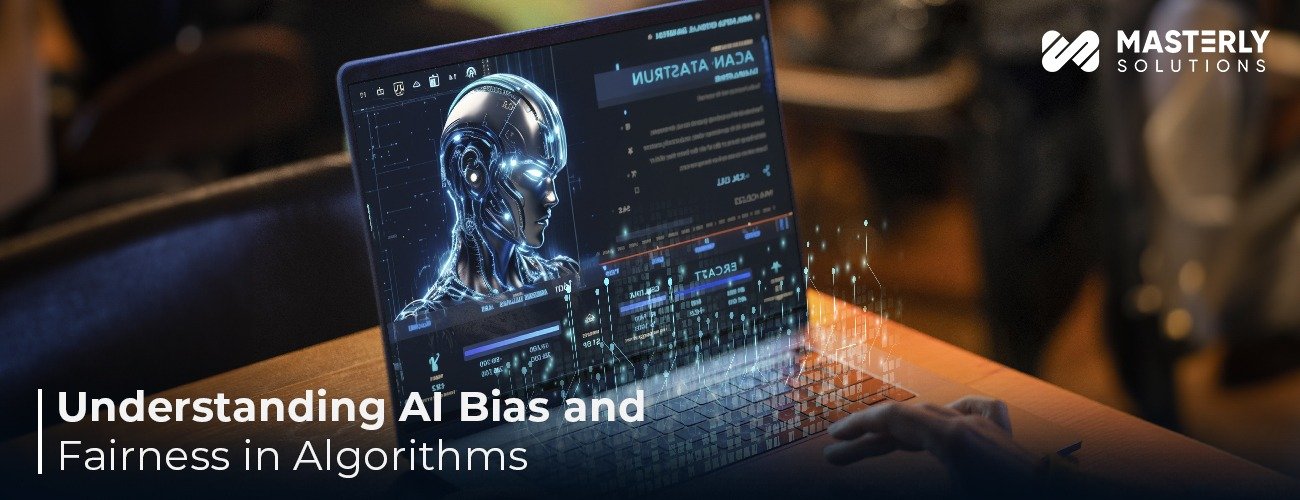
In the rapidly evolving realm of artificial intelligence (AI), the concepts of bias and fairness have emerged as critical topics for discussion and action. As a leading software development company specializing in AI solutions, Masterly Solutions is acutely aware of the impact that biased algorithms can have on society. AI systems, designed to make decisions based on data, have the potential to influence a wide range of sectors, including finance, healthcare, and digital marketing. However, when these systems are built on biased data or flawed algorithms, they can perpetuate and amplify existing societal inequalities. In this blog, we will explore what AI bias is, how it occurs, and the measures that can be taken to ensure fairness in AI algorithms.
What is AI Bias?
AI bias occurs when an algorithm makes decisions that are systematically prejudiced due to erroneous assumptions or limitations in the machine learning process. This can manifest in various forms, such as data bias (where the training data is not representative of the real-world scenario), algorithmic bias (where the algorithm processes data in a biased manner), or societal bias (where the algorithm’s outputs reinforce societal stereotypes).
Sources of AI Bias
The roots of AI bias can often be traced back to the data used to train the algorithms. For instance, if a facial recognition system is trained predominantly on images of people from a certain racial group, it will likely perform poorly on people from other racial groups. Similarly, if a job application screening tool is trained on historical hiring data that reflects gender biases, it might replicate those biases in its screening process.
Mitigating AI Bias
Mitigating AI bias involves a multi-faceted approach:
- Diverse Data Sets: Ensuring training data is diverse and representative.
- Algorithmic Transparency: Making algorithms transparent and understandable to identify where biases may occur.
- Regular Audits: Conducting regular audits of AI systems to check for biases.
- Ethical Guidelines: Establishing ethical guidelines for AI development and usage.
Case Studies
Several case studies highlight the successful identification and mitigation of AI bias. For example, a well-known AI-powered recruiting tool was found to be biased against female applicants. Once identified, the company took steps to retrain their model with a more gender-balanced dataset, leading to fairer outcomes.
Conclusion
Understanding and addressing AI bias is not just a technical challenge but a moral imperative. As we at Masterly Solutions continue to innovate and lead in the AI space, we are committed to ensuring that our technologies are fair and unbiased. This commitment to ethical AI development is not only vital for our business success but is also a contribution to building a more equitable society. By actively working to understand and mitigate AI bias, we can harness the true power of AI to benefit all segments of society, driving forward with technology that is as just as it is advanced.
